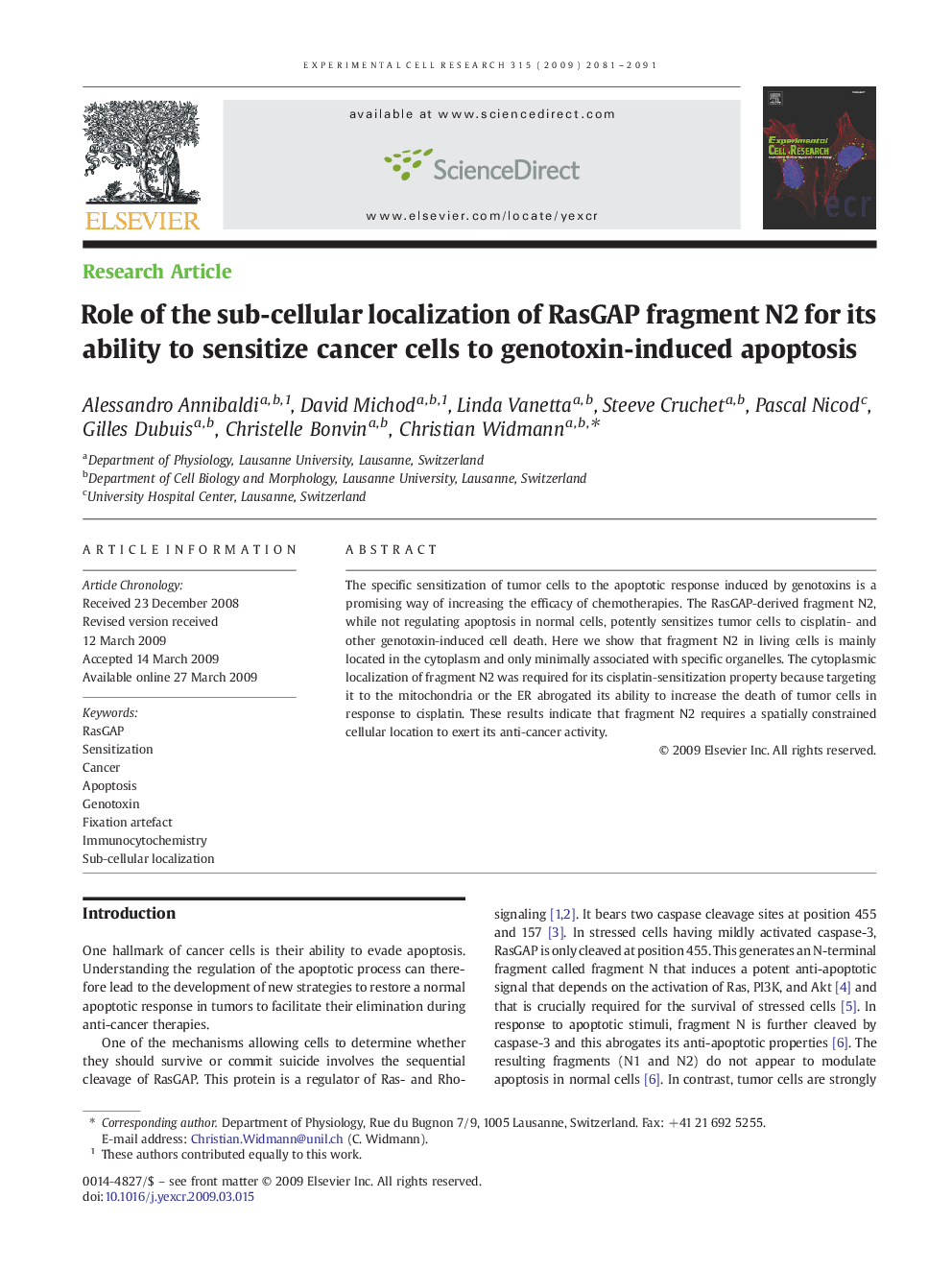| Article ID | Journal | Published Year | Pages | File Type |
|---|---|---|---|---|
| 2131295 | Experimental Cell Research | 2009 | 11 Pages |
The specific sensitization of tumor cells to the apoptotic response induced by genotoxins is a promising way of increasing the efficacy of chemotherapies. The RasGAP-derived fragment N2, while not regulating apoptosis in normal cells, potently sensitizes tumor cells to cisplatin- and other genotoxin-induced cell death. Here we show that fragment N2 in living cells is mainly located in the cytoplasm and only minimally associated with specific organelles. The cytoplasmic localization of fragment N2 was required for its cisplatin-sensitization property because targeting it to the mitochondria or the ER abrogated its ability to increase the death of tumor cells in response to cisplatin. These results indicate that fragment N2 requires a spatially constrained cellular location to exert its anti-cancer activity.
